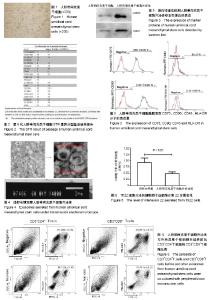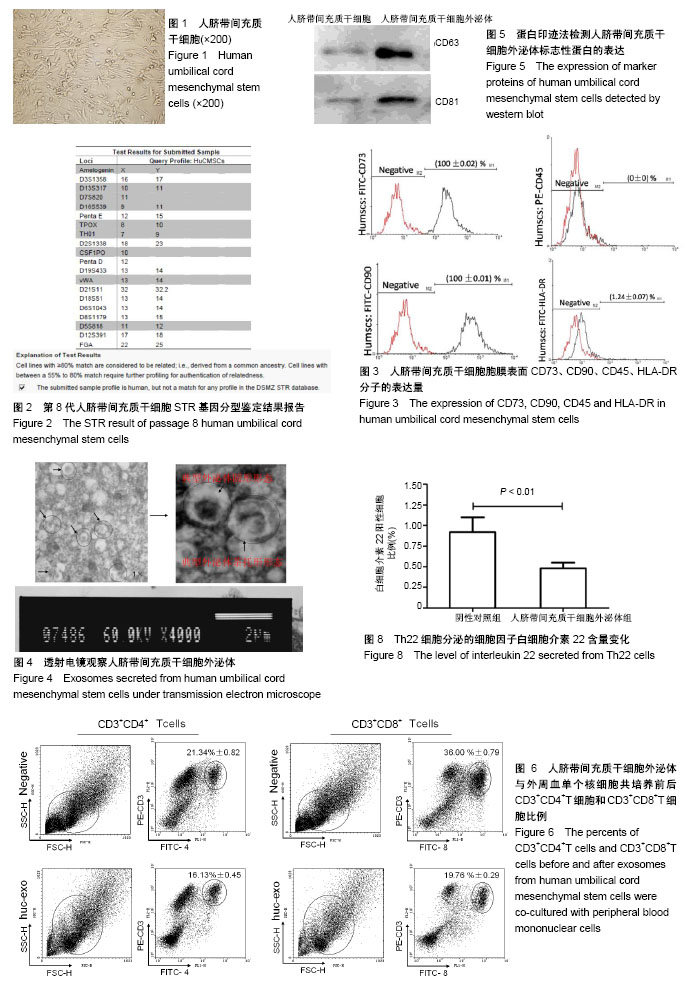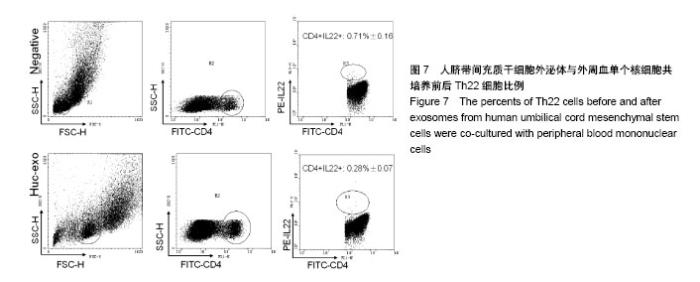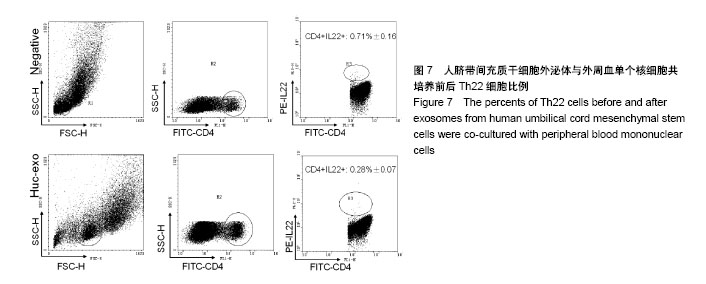| [1] Zhao K, Lou R, Huang F, et al. Immunomodulation effects of mesenchymal stromal cells on acute graft-versus-host disease after hematopoietic stem cell transplantation. Biol Blood Marrow Transplant. 2015;21(1):97-104.[2] Hessvik NP, Llorente A. Current knowledge on exosome biogenesis and release. Cell Mol Life Sci. 2018;75(2): 193-208.[3] Yáñez-Mó M, Siljander PR, Andreu Z, et al. Biological properties of extracellular vesicles and their physiological functions. J Extracell Vesicles. 2015;4:27066.[4] Théry C, Zitvogel L, Amigorena S. Exosomes: composition, biogenesis and function. Nat Rev Immunol. 2002;2(8): 569-579.[5] Raposo G, Stoorvogel W. Extracellular vesicles: exosomes, microvesicles, and friends. J Cell Biol. 2013;200(4):373-383.[6] Magenau J, Runaas L, Reddy P. Advances in understanding the pathogenesis of graft-versus-host disease. Br J Haematol. 2016;173(2):190-205.[7] Holtan SG, Pasquini M, Weisdorf DJ. Acute graft-versus-host disease: a bench-to-bedside update. Blood. 2014;124(3): 363-373.[8] Chen Y, Zhao Y, Cheng Q, et al. The Role of Intestinal Microbiota in Acute Graft-versus-Host Disease. J Immunol Res. 2015;2015:145859.[9] 杨向荣,丁娟,徐正阳,等.人脐带间充质干细胞来源外泌体的生物学特性研究[J].华中科技大学学报:医学版,2016,45(2):154-159.[10] EL Andaloussi S, Mäger I, Breakefield XO, et al. Extracellular vesicles: biology and emerging therapeutic opportunities. Nat Rev Drug Discov. 2013;12(5):347-357.[11] Colombo M, Raposo G, Théry C. Biogenesis, secretion, and intercellular interactions of exosomes and other extracellular vesicles. Annu Rev Cell Dev Biol. 2014;30:255-289.[12] Kourembanas S. Exosomes: vehicles of intercellular signaling, biomarkers, and vectors of cell therapy. Annu Rev Physiol. 2015;77:13-27.[13] 杨翔宇,李晓红,肖静,等.干扰素γ刺激hUC-MS Cs分泌外泌体促进调节性T细胞生成[J].中国药理学通报,2017,33(1):45-51.[14] 梁亚会,张青宜,郭子宽,等.人脐带间充质干细胞来源的外泌体免疫调节功能异质性研究[J].军事医学,2017,41(6):434-439.[15] Hu MY, Du XB, Hu HB, et al. MiR-410 inhibition induces HUVECs proliferation and represses ox-LDL-triggered apoptosis through activating STAT3. Biomed Pharmacother. 2018;101:585-590. [16] Zhang B, Shen L, Shi H, et al. Exosomes from Human Umbilical Cord Mesenchymal Stem Cells: Identification, Purification, and Biological Characteristics. Stem Cells Int. 2016;2016:1929536.[17] Qian X, Xu C, Fang S, et al. Exosomal MicroRNAs Derived From Umbilical Mesenchymal Stem Cells Inhibit Hepatitis C Virus Infection. Stem Cells Transl Med. 2016;5(9):1190-1203.[18] Yan Y, Jiang W, Tan Y, et al. hucMSC Exosome-Derived GPX1 Is Required for the Recovery of Hepatic Oxidant Injury. Mol Ther. 2017;25(2):465-479.[19] Seku?a M, Domalik-Pyzik P, Morawska-Chochó? A, et al. Polylactide- and polycaprolactone-based substrates enhance angiogenic potential of human umbilical cord-derived mesenchymal stem cells in vitro - implications for cardiovascular repair. Mater Sci Eng C Mater Biol Appl. 2017; 77:521-533. [20] Roura S, Pujal JM, Gálvez-Montón C, et al. Impact of umbilical cord blood-derived mesenchymal stem cells on cardiovascular research. Biomed Res Int. 2015;2015:975302. [21] Mokarizadeh A, Delirezh N, Morshedi A, et al. Microvesicles derived from mesenchymal stem cells: potent organelles for induction of tolerogenic signaling. Immunol Lett. 2012;147 (1-2):47-54.[22] Wang J, De Veirman K, De Beule N, et al. The bone marrow microenvironment enhances multiple myeloma progression by exosome-mediated activation of myeloid-derived suppressor cells. Oncotarget. 2015;6(41):43992-4004.[23] De Veirman K, Wang J, Xu S, et al. Induction of miR-146a by multiple myeloma cells in mesenchymal stromal cells stimulates their pro-tumoral activity. Cancer Lett. 2016;377(1): 17-24.[24] 陈颖,张秀明.Th22细胞生物学功能及临床应用的研究进展[J].实用医学杂志,2012,28(17):2970-2972.[25] 吕晶,徐军发.Th22细胞:一种新型的辅助型T细胞[J].中国热带医学,2011,11(1):111-113.[26] 辛甜甜,王晓华,陈永锋.Th22细胞及其细胞因子在银屑病发病机制中的作用[J].皮肤性病诊疗学杂志,2012,19(4):257-259,266. |



